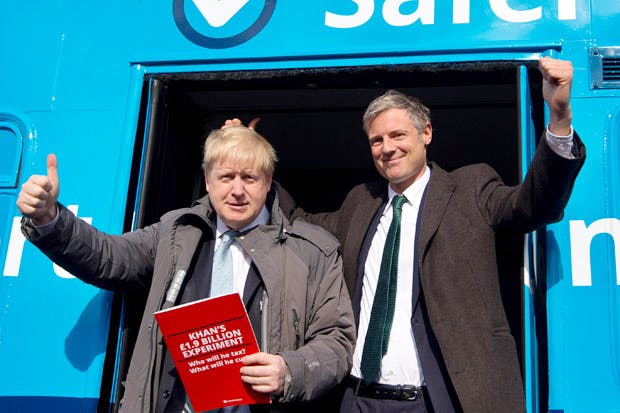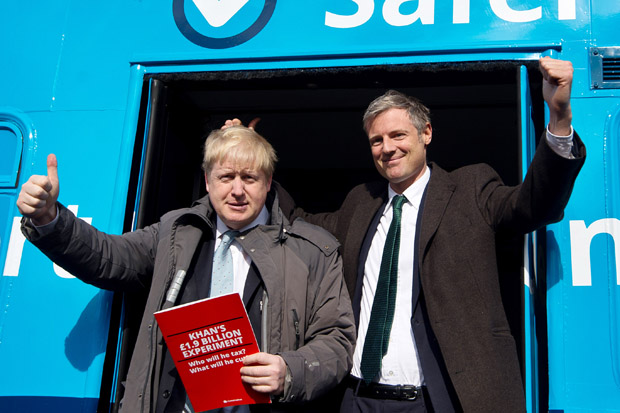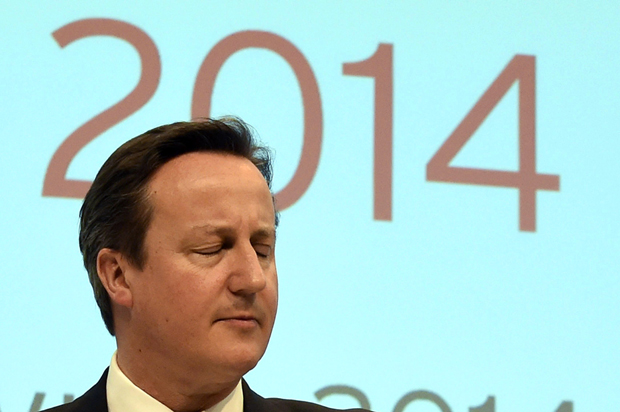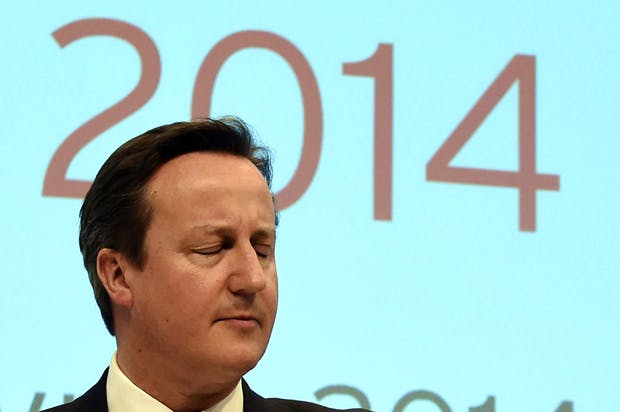The Labour plotters who dream of ousting Jeremy Corbyn had high hopes for the local elections on 5 May. They envisaged a moment of humiliation for their leader in Scotland, Wales and England; a moment that would prove beyond doubt that the party’s leftwards lurch had narrowed its appeal and consigned it to the electoral wilderness. A good time, in other words, to stage a coup. Corbyn’s loyalists, for their part, had been preparing to blame the rebels and their constant sniping. Neither side imagined what now looks likely: that Labour might soon be celebrating a stunning victory in London.
The party is expecting a sharp decline in its total number of English council seats. This is quite a failing for a party in opposition: Labour has only twice before managed to lose council seats when not in government: in 1982, after the formation of the SDP broke the party in half, and in the local elections that followed the 1984–85 miners’ strike. A third failure would be bad news for Corbyn and his apparatchiks, who claim to be one of the most successful oppositions in history. In the elections for the Scottish Parliament, too, Labour finds itself in the humiliating position of having to vie with the Tories for second place. And in Wales it faces not just a Tory renaissance but a Ukip surge.
There are plenty of excuses. A Labour wipeout in Scotland could be written off as the result of decades of complacency and neglect. Problems in Wales can be put down to a backlash against being in government. And Corbyn could well blame his ‘Blairite’ critics in Parliament for poor English local election results — a huge compliment to the Labour rebels, given how few voters can name any of them.
But the countrywide councils failure will be shrugged off if Boris Johnson is replaced as London mayor by Sadiq Khan, a Labour candidate with close links to the Corbyn machine. Khan started this campaign as the underdog but is now leading the polls by a healthy margin. Bookmakers put his chances of victory at 88 per cent (see graph, above). Those around Tory candidate Zac Goldsmith are in despair, and think the race is as good as lost. Tories in Tooting, the constituency Khan will resign from if elected mayor, are already bracing themselves for a by-election.
Goldsmith’s campaign has struggled for a number of reasons. He doesn’t give the impression he’s all that bothered about winning — a problem given that he’s up against the scrappy, energetic Khan. Goldsmith spent his earlier years trying to avoid the media, who were always interested in the son of a billionaire. In showbiz, the photographers chase you. In politics, you need to chase the photographers. Senior Tories are frustrated that their candidate doesn’t seem to have made the switch. One says: ‘Boris won in London despite the party, but if Zac wins, it will be because of the party.’
That bodes ill for Zac, because the Conservative party has an ageing and dwindling base, especially in London. When Lynton Crosby helped Boris campaign four years ago, he complained that many Tory members were taking their afternoon naps when he needed them on the streets. Those members haven’t got any younger.
Tory MPs are ordered to help Goldsmith as much as possible. Behind the scenes, however, a number of them point to the upside of losing the capital: an impressive Khan victory could well mean a few more years of abysmal opposition from Jeremy Corbyn. They would do better to ask themselves why the party is failing so dramatically in the capital. Some of Goldsmith’s allies grumble that Khan was the biggest single beneficiary of George Osborne’s last Budget. The recent rows over welfare cuts and the EU referendum have made it much harder for London campaigners to get their message across.
Some Labour rebels, meanwhile, are dreading a Khan victory. As a backbencher says, the 5 May elections ‘will be mixed enough for everyone to get what they want from the results. Corbyn’s guys can say they’ve won London and a council here or there, and they’re making progress.’
If the Corbynites can make this claim, the nervous majority of Labour MPs will be even less inclined to support an immediate coup. The most aggressive plotters are already conceding that not enough of their colleagues are ready to support even ‘unity candidates’ such as Angela Eagle and Hilary Benn.
So now the moderates are changing tack. One group has been holding discussions about using Khan as a stalking horse — hoping that, after a decent interval, he will turn on Corbyn and prompt a leadership crisis. One Labour rebel explains why: ‘If Sadiq wins, the Corbynistas will go on a week-long bender on their own Kool Aid. But most people will see he won by rejecting everything Corbyn stands for and, after their initial triumphalism, Sadiq will have an enduring platform to demonstrate an alternative way of delivering Labour values.’ Khan will be one of the few Labour figures actually in government. Another plotter says: ‘Look at the way Sadiq turned on Jeremy after he was named the candidate: he’s not someone who could resist twisting the knife when the time is right.’
While Khan nominated Corbyn for the leadership, they are by no means allies. As a whip in Gordon Brown’s government, Khan had the grim duty of regularly calling Corbyn to establish whether he would be rebelling against his party (the answer was invariably yes). So the current calls from the leadership for MPs to toe the line must be particularly frustrating for him.
Those Labour MPs who refuse to fall into line behind Corbyn have spent the past few months looking lost and angry. They have always known that they wanted to get rid of him, but didn’t know how. Now they are edging closer to a solution — one that, bizarrely, will involve the Labour leader appearing to do well in an election in which he was supposed to fail, and a man who nominated him becoming the great hope of the Labour moderates. As the Corbynistas like to say: the struggle takes many forms.
Got something to add? Join the discussion and comment below.
Get 10 issues for just $10
Subscribe to The Spectator Australia today for the next 10 magazine issues, plus full online access, for just $10.















Comments
Don't miss out
Join the conversation with other Spectator Australia readers. Subscribe to leave a comment.
SUBSCRIBEAlready a subscriber? Log in